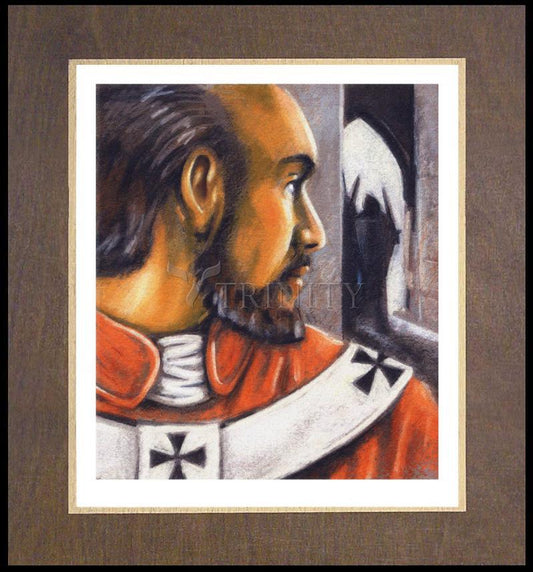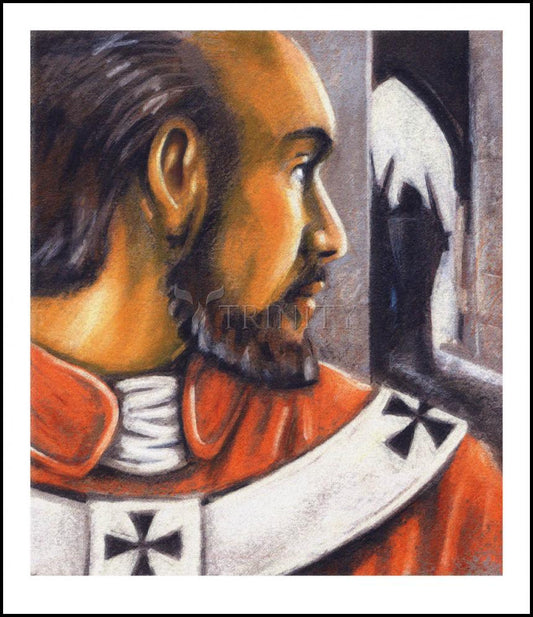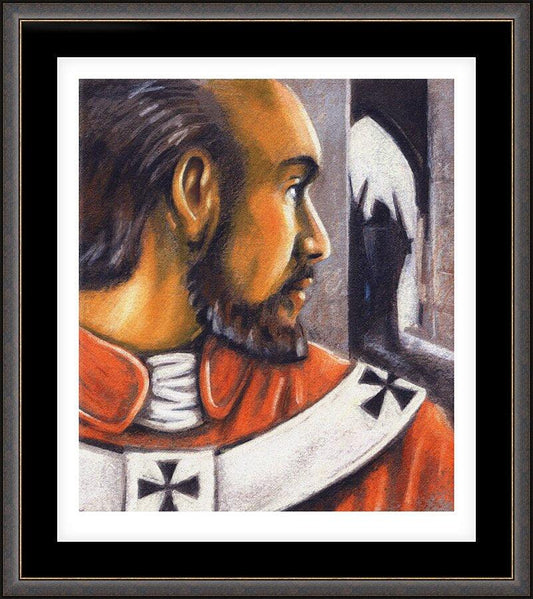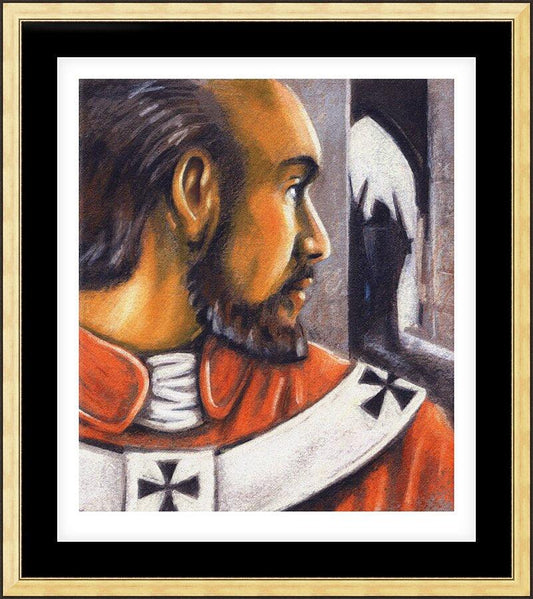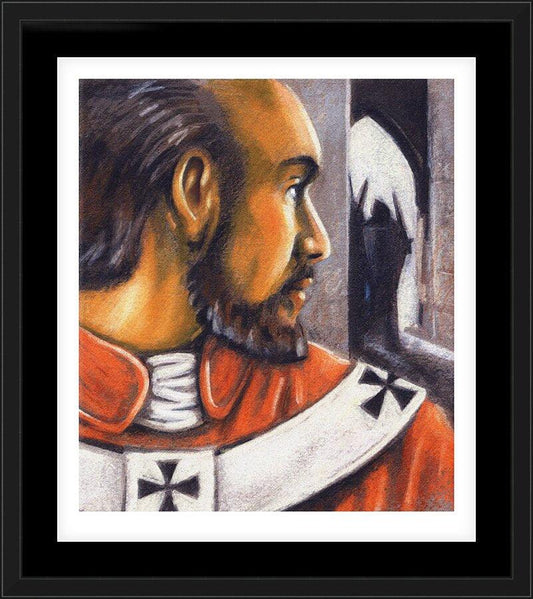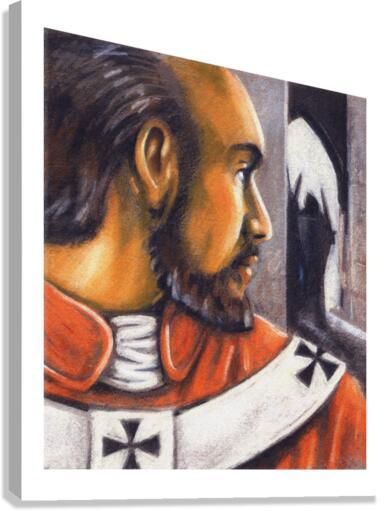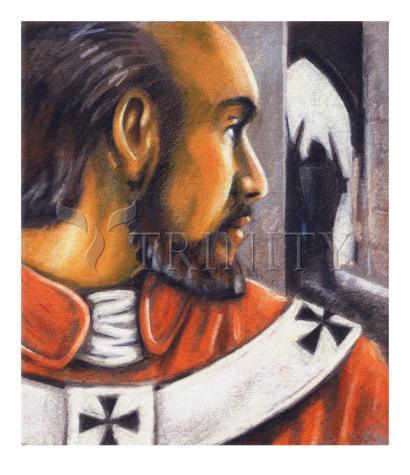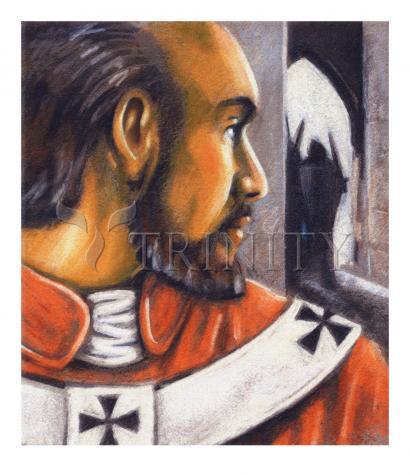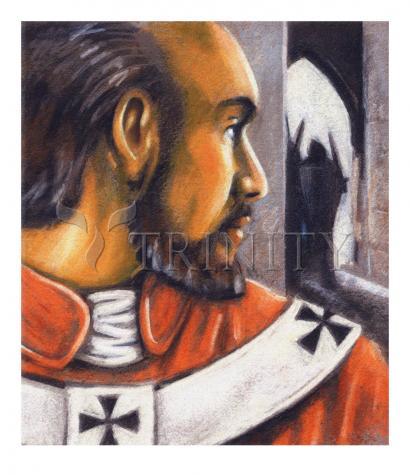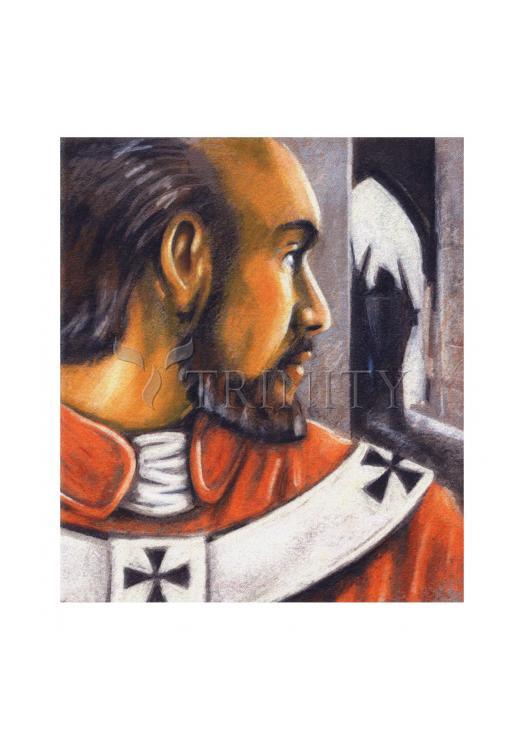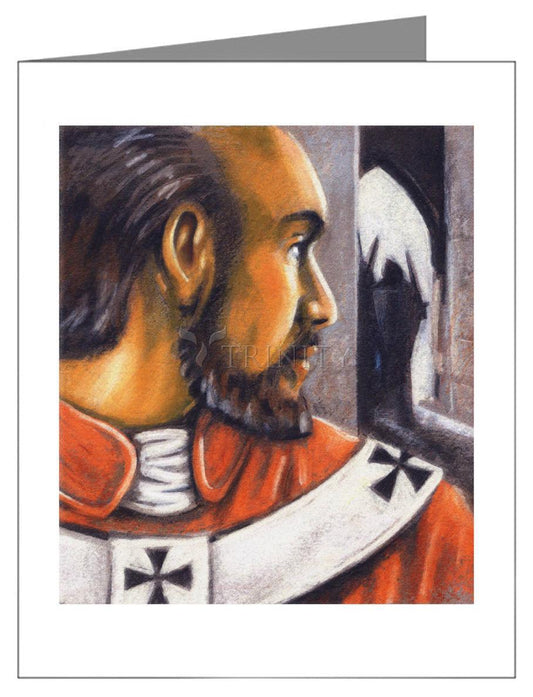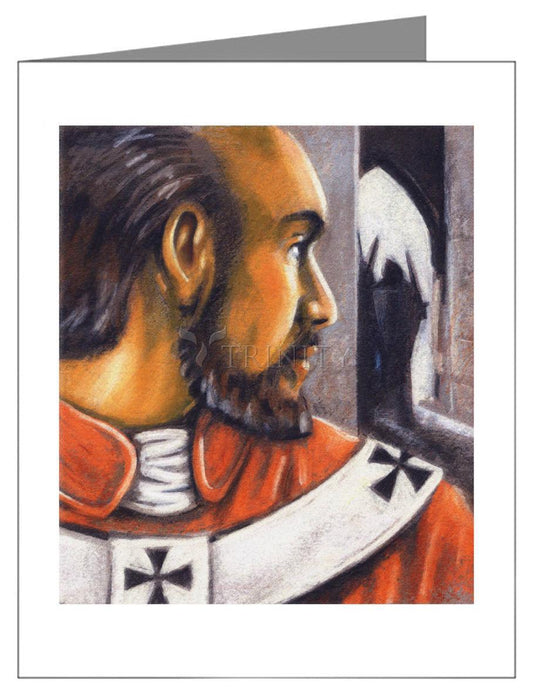Thomas Beckett was a strong man who wavered for a moment, but then learned one cannot come to terms with evil and so became a strong churchman, a martyr and a saint"that was Thomas Becket, archbishop of Canterbury, murdered in his cathedral on December 29, 1170.
His career had been a stormy one. While archdeacon of Canterbury, he was made chancellor of England at the age of 36 by his friend King Henry II. When Henry felt it advantageous to make his chancellor the archbishop of Canterbury, Thomas gave him fair warning: he might not accept all of Henry's intrusions into Church affairs. Nevertheless, he was made archbishop (1162), resigned his chancellorship and reformed his whole way of life!
Henry insisted upon usurping Church rights. At one time, supposing some conciliatory action possible, Thomas came close to compromise. He momentarily approved the Constitutions of Clarendon, which would have denied the clergy the right of trial by a Church court and prevented them from making direct appeal to Rome. But Thomas rejected the Constitutions, fled to France for safety and remained in exile for seven years. When he returned to England, he suspected it would mean certain death. Because Thomas refused to remit censures he had placed upon bishops favored by the king, Henry cried out in a rage, "Will no one rid me of this troublesome priest!" Four knights, taking his words as his wish, slew Thomas in the Canterbury cathedral. Thomas Becket remains a hero-saint down to our own times.
Born: December 21, 1118 at London, England
Died: Murdered on December 29, 1170 in the Cathedral at Canterbury, England
Canonized: February 21, 1173 by Pope Alexander III
Readings:
For our sake Christ offered himself to the Father upon the altar for the cross. He now looks down from heaven on our actions and secret thoughts, and one day he will give each of us the reward his deeds deserve.
It must therefore be our endeavor to destroy the right of sin and death, and by nurturing faith and uprightness of life, to build up the Church of Christ into a holy temple of the Lord.
The harvest is good and one reaper or even several would not suffice to gather all of it into the granary of the Lord. Yet the Roman Church remains the head of all the churches and the source of Catholic teaching. Of this there can be no doubt. Everyone know that the keys of the kingdom of heaven were given to Peter. Upon his faith and teaching the whole fabric of the Church will continue to be built until we all reach full maturity in Christ and attain to unity in faith and knowledge of the Son of God.
Of course many are needed to plant and many to water now that the faith has spread so far and the population become so great. Nevertheless, no matter who plants or waters, God gives no harvest unless what he plants is the faith of Peter, and unless he himself assents to Peter's teaching. All important questions that arise among God's people are referred to the judgment of Peter in the person for the Roman Pontiff. Under him the ministers of Mother Church exercise the powers committed to them, each in his own sphere of responsibility.
Remember then how our fathers worked out their salvation; remember the sufferings through which the Church has grown, and the storms the ship of Peter has weathered because it has Christ on board. Remember how the crown was attained by those whose sufferings gave new radiance to their faith. The whole company of saints bears witness to the unfailing truth that without real effort no one wins the crown.
"Excerpts from a letter by Saint Thomas Beckett



